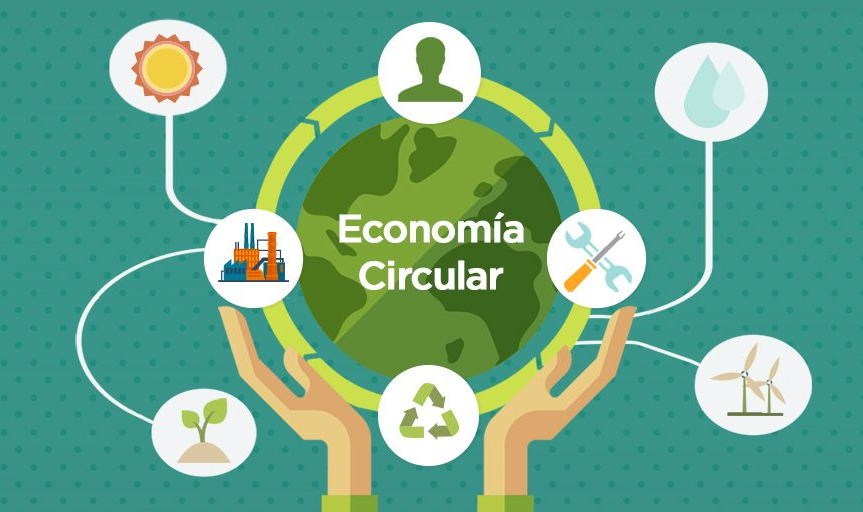
In recent decades, whether by conviction or by imposition, the improvement made in the environmental management of industrial activity is well known, above all due to greater social awareness reflected in increasingly stringent discharge or emission regulations, together with the implementation of modifications in process, in monitoring, good practices, etc., which have resulted in obtaining Environmental Management systems.
At Grupo Vento, we have been observing this evolution, helping as a technological partner to reduce the emission of pollutants, below the permitted limits.
This approach has clearly been linked to a “Linear Economy”. That is, an economy in which in the industrial process some goods or products are obtained, from the extensive consumption of raw materials, water and energy. Although, for economic reasons, the maximum efficiency in the use of these resources was sought -not always-, environmental policies and measures were mainly focused on reducing the pollution of the receiving environments (water and air), through the treatment of discharges or emissions.
In recent years, however, institutions, governments (Agenda 2030) and industrial agents are betting on the application of the CIRCULAR ECONOMY.
In a so-called “modern” world it is not lost on us that the rampant consumption of the planet’s natural resources is finite. That it is impossible to maintain an economy that bases its growth on gifts of nature that have an expiration date, especially if we do not change our processes and habits: wood, coal, oil, water, etc. Not only is the availability of resources at risk, but the increase in pollution and degradation of the environment is reliable.
Energy reuse is logically imposed, both directly and indirectly. In the first place, developing more efficient production processes, with the use of alternative energies such as wind, photovoltaic, bio-renewable fuels, etc; as well as the search for the optimization of energy flows in the process. And secondly, reusing waste and by-products, both personal and industrial, to once again generate sources of wealth. This is, briefly explained, the principle of the Circular Economy. An approach to new projects and modification of existing processes, maximizing the reuse of resources (water, energy, raw material), which may include energy recovery or as raw material of process by-products.
This change is not easy, since it involves investments that can be high for companies. However, at Grupo Vento we have the experience of knowing first-hand that the introduction of this approach has, in most cases, an economic return. In some cases, even very fast. The European Union in its report in 2018 on the agenda to promote the Circular Economy, estimated an annual profit of 1.8 trillion euros in the EU as a whole. That is why from the European Directives and their transposition to national governments, support for the Circular Economy is beginning to be promoted directly or indirectly. For example, through the higher valuation of projects, in public tenders, that incorporate this approach (for example, through minimization of residual discharges and maximum water regeneration); penalizing higher discharge flows to a greater extent and also prioritizing aid for business improvement projects that incorporate these concepts.
In short, given the unsustainability of the current linear model that has been imposed as the dominant economic development pattern, it is necessary to advance in the implementation of a development and growth model that allows optimizing the use of available resources, materials and products while maintaining its value in the economy as a whole for as long as possible and in which the generation of waste is minimized.
According to the EU, “The transition from a linear economy to a circular economy requires coordinated activity between Administrations, economic sectors and society as a whole. In addition, in this process and in order to achieve the proposed objectives, it is necessary to develop and apply new knowledge, which gives rise to new technological developments, innovative processes, products and services, which allow, through their adoption, to contribute to the competitiveness of our companies. companies, while generating new business opportunities and creating new value chains.
In this context, it is important to highlight that the transition to a circular economy requires the adoption of not only technological but also organizational and social innovations that are essential to drive the necessary change.